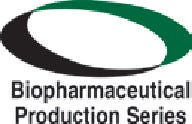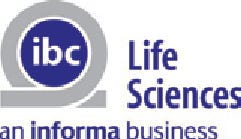IBC's 14th Annual Well Characterized Biologicals Practical Case Studies, Analytical Strategies, and Regulatory Perspectives for Protein Product Characterization
September 1, 2010


IBC’s Well Characterized Biologicals conference is the top forum for hearing industry case studies and unpublished new data on the challenges, strategies, and technologies involved in protein characterization. Register now for exclusive access to meet FDA reviewers and industry experts who will share their insights to help you implement new approaches and avoid common pitfalls in your own characterization projects.
Hear first-hand from FDA reviewers about their “pet peeves” and suggestions to help you improve your IND packages and characterization efforts. Find new strategies to help you characterize complex protein products, including enzymes, conjugates, vaccines, and fusion proteins. Gain insights into the development of new biological assays for product characterization that you can benchmark against your own analytical testing efforts. Discover new testing and characterization methods for host cell impurities and posttranslational modifications that you can apply in your own laboratory. Learn new techniques for monitoring protein aggregation and particulate formation to better characterize your own products. Optimize your process and product knowledge through case studies on comparability and linking structure and function to critical quality attributes.
COLOCATED CONFERENCE
Process2Product — Translating Process Knowledge into Quality Biological Products: Learn how to apply multivariate data analysis, automation, and on-/in-/at-line monitoring and controls to improve process development and manufacturing (21–22 October 2010).
www.IBCLifeSciences.com/P2P
New This Year
Case studies involving a broader range of molecules (e.g., enzymes and oligonucleotides)
More coverage of the IgG family of molecules beyond IgG1
New coverage of complex protein products (e.g., conjugates, bispecifics, and PEGylated molecules)
More emphasis on host cell proteins, aggregates, and posttranslational modifications
Featured FDA Presentations
“Strategies in the Design of Potency Assays for Therapeutic Enzymes” by Richard Ledwidge, PhD (CDER Division of Therapeutic Proteins)
“Combination Products: An Overview” by Kathy Lee (CDER Division of Therapeutic Proteins, Laboratory of Biochemistry)
“Characterization of Biotechnology Products: An FDA Perspective” by Laurie Graham (CDER Division of Monoclonal Antibodies, Office of Biotechnology Products)
“A Regulatory Perspective on the Development and Validation of Biopharmaceutical Potency Assays” by Carla SR Lankford, MD, PhD (CDER Division of Monoclonal Antibodies, Office of Biotechnology Products)
“Pet Peeves and Roadblocks in CMC: Improving your Quality Submissions through the Product Lifecycle” Chana Fuchs, PhD (CDER Division of Monoclonal Antibodies) and Marjorie Shapiro, PhD (CDER Laboratory of Molecular and Developmental Immunology)
“Comparability of Biotechnology Products: Regulatory Considerations and Case Studies” by Rashmi Rawat, PhD (CDER Division of Monoclonal Antibodies)
“Analytical Characterization for Gene Therapy Products” by Michael Havert, PhD (CBER Division of Cell and Gene Therapies)
Conference Sessions
Characterizing Complex Protein Products
Structure/Function and Critical Quality Attributes
Biological Assays for Product Characterization
Post-Translational Modifications
Special Joint Session
Regulatory Perspectives and “Pet Peeves”
Vaccine Characterization
Testing and Characterization of Host Cell Impurities
Monitoring Protein Aggregation and Particulate Formation
Comparability Case Studies
Comparability of Biotechnology Products
ADVISORY BOARD
Reed Harris (Genentech, Inc.); John P. Hennessey, Jr., PhD (NovaDigm Therapeutics, Inc.); Alan V. Klotz, PhD (Elanco Biosciences); Joseph Kutza, PhD (MedImmune); Ned Mozier, PhD (Pfizer, Inc.); Michael G. Mulkerrin, PhD (OncoMed Pharmaceuticals); and Nadine M. Ritter, PhD (Biologics Consulting Group)
This program has been designed to assist companies of all sizes and at various levels of development in overcoming obstacles to technical and regulatory of characterization through expanded coverage of emerging analytical techniques and technologies to improve process and product understanding. Case studies and new, unpublished data will be presented.
You May Also Like





